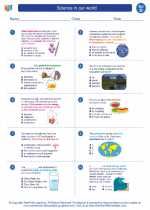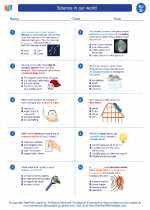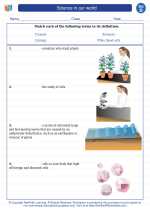Insulators
An insulator is a material that does not easily allow the flow of electric current. Insulators have high electrical resistance, which means they prevent the movement of electric charges. This property makes them useful for a variety of applications, including electrical insulation, protecting against electric shock, and preventing energy loss.
Properties of Insulators
- Electrical Resistance: Insulators have high electrical resistance, which means they inhibit the flow of electric current.
- Non-Conductive: Insulators are non-conductive materials, meaning they do not conduct electricity easily.
- Thermal Insulation: Many insulators also have high thermal resistance, which makes them useful for preventing the transfer of heat.
- Examples: Common insulating materials include rubber, glass, plastic, wood, and ceramic.
Applications of Insulators
Insulators are used in various practical applications, including:
- Electrical Wiring: Insulating materials are used to cover and protect electrical wires, preventing the flow of current to unintended paths and reducing the risk of electric shock.
- Building Construction: Insulators are used as thermal insulation in buildings to reduce heat transfer and improve energy efficiency.
- Electronics: Insulating materials are used to prevent the flow of current between electronic components and protect against short circuits.
Study Guide
To understand insulators better, you can focus on the following key points:
- Define what insulators are and explain their role in preventing the flow of electric current.
- Identify common insulating materials and their properties, such as electrical resistance and thermal insulation.
- Explore practical applications of insulators in daily life, such as in electrical devices, building materials, and safety equipment.
- Discuss the importance of using insulators in electrical systems and the potential risks of not using them.
By studying these aspects of insulators, you can gain a comprehensive understanding of their significance and practical use in various fields.
.◂Science Worksheets and Study Guides Fourth Grade. Science in our world
Study Guide Science in our world - 4th gr.
Science in our world - 4th gr.  Worksheet/Answer key
Worksheet/Answer key Science in our world - 4th gr.
Science in our world - 4th gr.  Worksheet/Answer key
Worksheet/Answer key Science in our world - 4th gr.
Science in our world - 4th gr.  Worksheet/Answer key
Worksheet/Answer key Science in our world - 4th gr.
Science in our world - 4th gr.  Vocabulary/Answer key
Vocabulary/Answer key Science in our world - 4th gr.
Science in our world - 4th gr. 

 Worksheet/Answer key
Worksheet/Answer key
 Worksheet/Answer key
Worksheet/Answer key
 Worksheet/Answer key
Worksheet/Answer key
 Vocabulary/Answer key
Vocabulary/Answer key

The resources above cover the following skills:
History and Nature of Science: A student should understand the history and nature of science. A student who meets the content standard should:
Develop an understanding that historical perspectives of scientific explanations demonstrate that scientific knowledge changes over time, building on prior knowledge.
Develop an understanding that scientific knowledge is ongoing and subject to change as new evidence becomes available through experimental and/or observational confirmation(s).